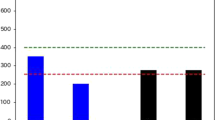Abstract
We consider a mechanism design problem for the provision of a binary excludable public good. We characterize the augmented serial rules (Ohseto, Econ Theory 26:589–606 2005) by strategy-proofness, envy-freeness, and access independence. This result is the positive answer to the first open question posed by Ohseto (Econ Theory 26:589–606, 2005). We also show that, in addition to the augmented serial rules, there exists a rule satisfying strategy-proofness, symmetry, access independence, and non-bossiness. This result is the negative answer to the second open question posed by Ohseto (Econ Theory 26:589–606, 2005).
Similar content being viewed by others
Notes
Although Moulin (1994) has considered the divisible case, the serial rule applies to the binary case.
Yu (2007) has characterized the rule in the multiple units case.
Massó et al. (2015) have also shown that there exists a rule that satisfies strategy-proofness and individual rationality, and that achieves strictly lower maximal welfare loss than the serial rule in more than two agents case.
Thomson (2014) has discussed this condition extensively.
This condition is sometimes called as consumer sovereignty. For example, in Moulin (1999), Juarez (2008), and Juarez (2013a).
Moulin and Shenker (2001) have used the same term, consumer sovereignty, as a weaker notion, which requires that each agent has the option to obtain the good, regardless of other agents’ valuations. That is, it does not require the option not to obtain the good. With this weaker form, however, our characterization is not valid. Consider the rule that always assigns \((1,\frac{1}{n})\) to all agents.
This condition is sometimes called as voluntary participation.
When \(n=2\), Ohseto (2003) has shown that there does not exist another rule satisfying them.
This rule does not also satisfy a weaker form of non-bossiness, called non-bossiness in welfare on the conclusion side (Thomson 2014). It requires that if a change in an agent’s valuations is not accompanied by a change in his assignment, then the welfare of none of the other agents should be affected. Consider the assignments of agents 1 and 2 at the valuation profiles \((0,\frac{1}{n-2}, \frac{1}{n-1},\ldots , \frac{1}{n-1})\) and \((\frac{1}{n+1},\frac{1}{n-2}, \frac{1}{n-1},\ldots , \frac{1}{n-1})\).
Notice that \(p^1(S)\) (\(p^0(S)\)) does not express the payment of each agent in S (\(N\setminus S\)) when S are consumers.
References
Dearden JA (1998) Serial cost sharing of excludable public goods: general cost functions. Econ Theory 12:189–198
Deb R, Razzolini L (1999a) Auction-like mechanisms for pricing excludable public goods. J Econ Theory 88:340–368
Deb R, Razzolini L (1999b) Voluntary cost sharing for an excludable public project. Math Soc Sci 37:123–138
Juarez R (2008) The worst absolute surplus loss in the problem of commons: random priority versus average cost. Econ Theory 34:69–84
Juarez R (2013a) Group strategyproof cost sharing: the role of indifferences. Games Econ Behav 82:218–239
Juarez R (2013b) Optimal group strategy-proof cost sharing. University of Hawaii, Mimeo
Massó J, Nicolò A, Sen A, Sharama T, Ülkü L (2015) On cost sharing in the provision of a binary and excludable public good. J Econ Theory 155:30–49
Moulin H (1994) Serial cost-sharing of excludable public goods. Rev Econ Stud 61:305–325
Moulin H (1999) Incremental cost sharing: characterization by coalitional strategy-proofness. Soc Choice Welf 16:279–320
Moulin H, Shenker S (2001) Strategyproof sharing of submodular costs: budget balance versus efficiency. Econ Theory 18:511–533
Mutuswami S (2007) Strategyproof cost sharing of multiple excludable public goods. J Public Econ Theory 9:793–808
Ohseto S (2000) Characterizations of strategy-proof mechanisms for excludable versus nonexcludable public projects. Games Econ Behav 32:51–66
Ohseto S (2003) Serial cost sharing with simple games for excludable public goods. Research Paper No. 41, Tokyo Metropolitan University
Ohseto S (2005) Augmented serial rules for an excludable public good. Econ Theory 26:589–606
Ohseto S (2010) \(\alpha \)-serial mechanisms for the provision of an excludable public good. Jpn Econ Rev 61:507–516
Olszewski W (2004) Coalition strategy-proof mechanisms for provision of excludable public goods. Games Econ Behav 46:88–114
Thomson W (2014) Non-bossiness. University of Rochester, Mimeo
Yu Y (2007) Serial cost sharing of an excludable public good available in multiple units. Soc Choice Welf 29:539–555
Author information
Authors and Affiliations
Corresponding authors
Rights and permissions
About this article
Cite this article
Hashimoto, K., Saitoh, H. Strategy-proof rules for an excludable public good. Soc Choice Welf 46, 749–766 (2016). https://doi.org/10.1007/s00355-015-0933-0
Received:
Accepted:
Published:
Issue Date:
DOI: https://doi.org/10.1007/s00355-015-0933-0



